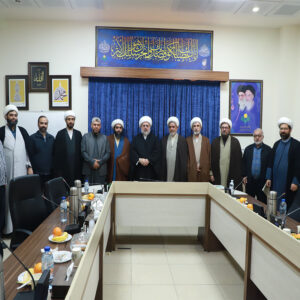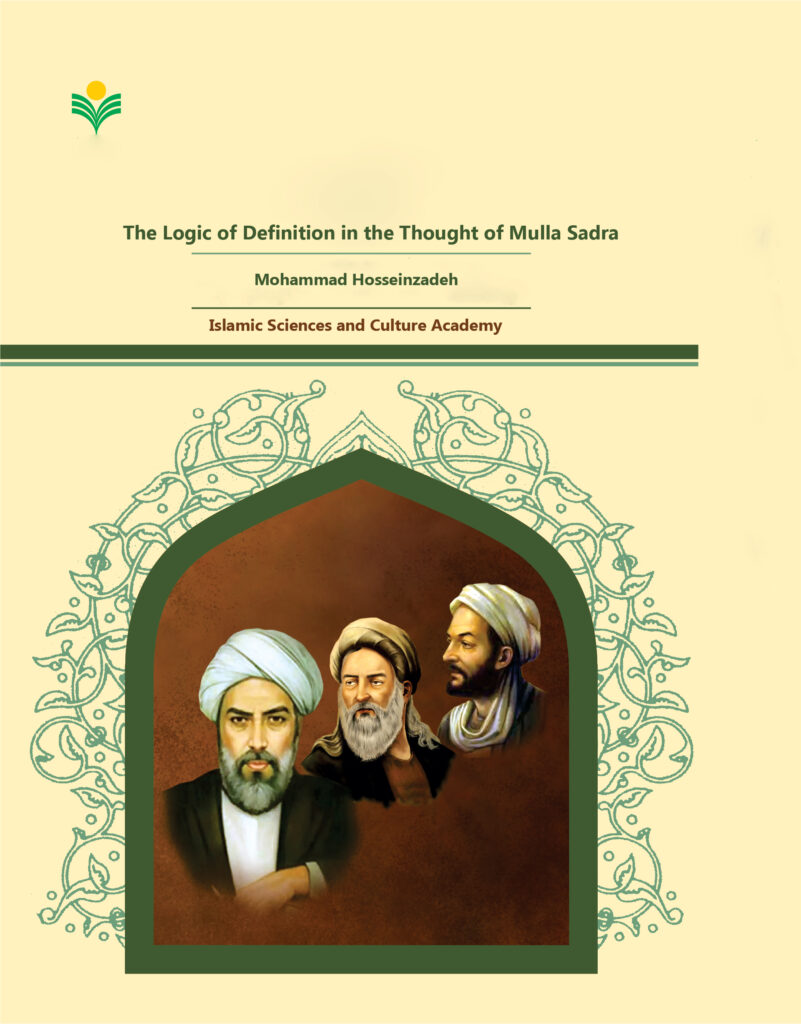The Logic of Definition in the Thought of Mulla Sadra
Mohammad Hosseinzadeh[1]
Keywords: Logic of Definition, Primacy of Existence, Essence, Mulla Sadra.
Problem Statement
Many of the discussions on the logic of definition before Mulla Sadra were based on an essentialist view of external reality. Following the fundamental issue of the primacy of existence in Mulla Sadra’s philosophical system, it is necessary to re-examine previous discussions and present them in a manner consistent with the primacy of existence doctrine. This research organizes the scattered discussions on the logic of definition influenced by the primacy of existence in Mulla Sadra’s works into a coherent framework and analyzes his engagement with the views of earlier logicians.
Primary and Secondary Questions
This book seeks to answer the primary question: “What impact does Mulla Sadra’s existential philosophy have on the transformation of the logic of definition?” To answer this, it is essential to address the following question: How are the topics of “concept and judgment,” “universal and particular,” “the five universals,” and “definition and description” re-examined in Mulla Sadra’s existential philosophy?
Objectives
The primary objective of this study is to attain a coherent intellectual system of Ṣadr al-Mutaʾallihīn (Mulla Sadra) in the logic of definition. Additionally, several other objectives are pursued under this main goal, which include: examining the historical evolution of the discussions on the logic of definition and analyzing Mulla Sadra’s approach to the views of previous logicians and philosophers; highlighting Mulla Sadra’s innovations in the logic of definition; and investigating the impact of the primacy of existence on Mulla Sadra’s logic of definition.
Research Method
This research employs an analytical-descriptive method to select issues in the logic of definition that Mulla Sadra has altered based on the theory of the primacy of existence and the conceptual validity of essence. After explaining the historical evolution of the issue based on its philosophical foundations in Peripatetic and Illuminationist philosophy, the research examines how Mulla Sadra approached the issue. Through this examination, the transformation of the issue within Mulla Sadra’s existential system is also elucidated. The necessary information is gathered from written sources in the form of books and articles, as well as computer software. Some findings of this research are new discoveries not found in secondary books and articles, directly sourced from primary texts. In writing some other discussions, contemporary books and articles have also been utilized.
Research Structure
The content of this book is organized into five chapters. The first chapter provides general information about Mulla Sadra’s logic of definition. The second chapter, after outlining the historical evolution of the issue of concept and judgment before Mulla Sadra and identifying the controversial points and their origins, re-examines Ṣadr al-Mutaʾallihīn’s view in light of the theory of the primacy of existence. The third chapter is dedicated to a philosophical analysis of the issue of universals and particulars. In this chapter, after explaining the perspectives of philosophers and logicians before Mulla Sadra about universals and particulars and showing the central role of essence in their views, Mulla Sadra’s approach to the views of his predecessors is analyzed based on the theory of the primacy of existence. The fourth chapter revisits the issue of the five universals and analyzes its transformation in Mulla Sadra’s existential philosophy. In the fifth chapter, after explaining Mulla Sadra’s approach to the logic of definition and deriving the general principles of his thought in defining things—including existential matters—we present his most important innovations in the topic of definition.
Novelty
A brief overview of the book’s content reveals its features and innovations as follows:
- a) Attaining Mulla Sadra’s final views on the issues of the logic of definition from the scattered positions among his numerous works, organizing and analyzing them based on his philosophical principles into a coherent intellectual system. b) Analyzing Mulla Sadra’s engagement with the views of previous philosophers and logicians and explaining the historical evolution of the logic of definition.
Discussion Results:
According to the research findings, the change brought about by the doctrine of the primacy of existence in the foundations of pre-Sadrian (Sadrian means anything related to or derived from the philosophical thought and teachings of Mulla Sadra) essentialist logic necessitates a transformation in Sadrian logic as well as in the philosophy of Sadrian logic. The overall approach of the changes resulting from the basis of the primacy of existence in the logic of definition is an “approach of correction and generalization. “The “corrective approach” to essence means that in the logic of the primacy of existence, the independent view of essence is corrected, and essence is merely considered a title and a tool for considering existence and its judgments. The “generalization approach” means that the fundamental external reality, in addition to its essence, has other aspects that, like essence, can be understood through conceptual knowledge and are subject to logical rules and laws. Among these non-essential aspects are causality, unity, and many other secondary philosophical concepts. The logic of the primacy of existence is generalized in this sense: when formulating and deriving logical rules, it takes these non-essential aspects into account and includes them without any figurative language.
[1] . Assistant professor, Department of Islamic Philosophy, Iranian Institute of Philosophy. hosseinzadeh@irip.ac.ir.







